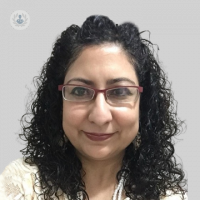ADHD and ASD: Differences, similarities and co-occurrence
Written in association with:Attention deficit hyperactivity disorder (ADHD) and autism spectrum disorder (ASD) are two neurodevelopmental conditions that can affect individuals differently. In this informative article, leading consultant psychiatrist Dr Simmi Sachdeva-Mohan discusses the similarities, differences, and co-occurrence of ADHD and ASD.

What is ADHD?
ADHD is a neurodevelopmental disorder characterised by persistent patterns of inattention, hyperactivity, and impulsivity that interfere with daily functioning and development. Individuals with ADHD may struggle with tasks that require sustained attention, organization, and impulse control.
What is ASD?
ASD is a complex neurodevelopmental condition characterised by difficulties in social interaction, communication, and repetitive behaviours or restricted interests. It encompasses a spectrum of symptoms, ranging from mild to severe, and can significantly impact an individual's ability to navigate social situations and understand social cues.
Can you have both ADHD and ASD?
Yes, it’s possible for individuals to have both ADHD and ASD, and this co-occurrence is relatively common. Research suggests that between 30 to 80 per cent of individuals with ASD also meet the criteria for ADHD. However, it's important to note that having one condition does not necessarily mean that an individual will have the other.
What are the similarities between ADHD and ASD?
ADHD and ASD share some common features, including:
Executive function difficulties
Both ADHD and ASD can affect executive functions such as working memory, organisation, and planning.
Social challenges
Individuals with both ADHD and ASD may struggle with social interactions, understanding social cues, and maintaining friendships.
Repetitive behaviours
While repetitive behaviours are a hallmark feature of ASD, they can also be present in individuals with ADHD, albeit to a lesser extent.
What are the differences between ADHD and ASD?
Although ADHD and ASD share some similarities, they also have distinct features:
Core symptoms
The core symptoms of ADHD primarily involve difficulties with attention, hyperactivity, and impulsivity, whereas the core symptoms of ASD involve challenges with social communication and interaction, as well as restricted interests and repetitive behaviours.
Onset and presentation
ADHD symptoms typically manifest in early childhood and are often recognised by caregivers and teachers due to difficulties in school performance and behaviour. In contrast, the symptoms of ASD may be less apparent in early childhood and may become more noticeable as social demands increase.
How are ADHD and ASD diagnosed?
The diagnosis of ADHD and ASD involves a comprehensive evaluation by a qualified healthcare professional, such as a psychiatrist or developmental paediatrician. This evaluation may include:
- Clinical interviews: Gathering information from the individual, parents, caregivers, and teachers about the individual's symptoms and developmental history.
- Behavioural observations: Observing the individual's behaviour in different settings to assess for symptoms related to ADHD and ASD.
- Psychological testing: Administering standardised assessments to evaluate cognitive functioning, attention, executive function, and social skills.
What are the treatment options for individuals with ADHD and ASD?
Treatment for ADHD and ASD typically involves a multimodal approach tailored to the individual's specific needs and symptoms. This may include:
Behavioural interventions
Teaching strategies to improve organisation, time management, social skills, and emotional regulation.
Medication
Prescription medications such as stimulants (for ADHD) or selective serotonin reuptake inhibitors (for ASD-related symptoms) may be recommended to help manage symptoms.
Educational support
Implementing accommodations and supports in school or work settings to address learning difficulties and promote success.
How important is to know the difference between ADHD and ASD?
ADHD and ASD are distinct neurodevelopmental conditions, they can co-occur in some individuals. Understanding the similarities, differences, and diagnostic process for ADHD and ASD can help individuals and their families navigate the challenges associated with these conditions and access appropriate support and treatment.
Concerned about ADHD, ASD or both conditions co-occurring? Arrange a consultation with Dr Sachdeva-Mohan via her Top Doctors profile.


